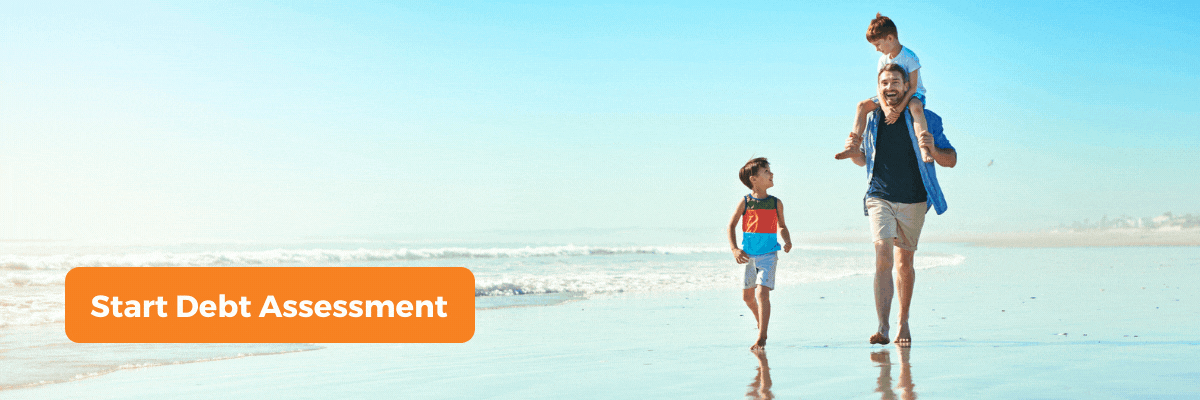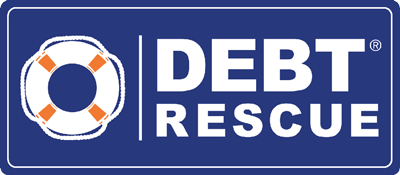You made it, 2020 is behind you and we are now looking forward at a hopeful 2021. Last year saw fires, floods, pandemics and politics all running riot across Australia and the world. For many, the Christmas and New Year period signalled making it to the end of this rocky road.
What this also resulted in, was an increase in spending, as consumers let their hair down in well-deserved celebration. People have spoiled themselves and one another, assisted by the Australian Government propping up the country to keep the economic wheel spinning. However be warned, changes are coming and it's important to protect your credit score and control your debts.
Has your Credit Card Debt grown?
To assist in our celebrations, many Australian’s have turned to their credit cards to spend big. Christmas presents, parties, holidays and home renovations all included in the spending spree that welcomed the New Year. The ramp up began in November, with a quick 13% jump in spending as reported by the CBA. Data showed that both in-store and online spending had an uplift with Victorians taking the lead. The unsurprising delight of being released from some strict lockdown laws paving the way for the excited purchasing. One interesting figure as the end of the year grew closer was the large increase in spend on household furniture. In November, this area was up 37% on the previous year’s figures. It seems with people stuck at home, they would take the opportunity to revamp their surroundings.
While it appears most Australians paid down credit and built-up savings during the course of the 2020 pandemic, spending has sprung back into action quickly. What now awaits to be seen is how much our holiday bill has collectively come to, and how will we manage these repayments as federal assistance falls away throughout 2021. A great place to start is a credit card calculator to help understand interest payable on your current balance.
Government support will end
Make no mistake, financial support from the Australian Government will fade over the coming months and to make sure we don’t find ourselves stuck once again, it’s time to start budgeting now. The holiday splurge is mostly over, and no one wants to feel these financial burdens again in 2021 as they did last year. Many people may have fallen into the trap of using government payments as part of their household budget, part of which includes debt repayments. If this is you, it’s time to act now. As the support falls away, it is vital you already have a plan to control your debts and their repayments using your incomings alone.
Here is some key information to consider as you start planning for the year ahead:
Coronavirus supplement payments:
- $550 per fortnight – 27 April 2020 to 24 September 2020
- $250 per fortnight – 25 September 2020 to 31 December 2020
- $150 per fortnight – 1 January 2021 to 31 March 2021
- $0 per fortnight – 1 April 2021 onwards (at the time of article release)
Eligible coronavirus supplement recipients since 27 April 2020:
- JobSeeker Payment
- Youth Allowance
- ABSTUDY (Living Allowance)
- Austudy
- Parenting Payment
- Partner Allowance
- Widow Allowance
- Farm Household Allowance
- Special Benefit.
Other extended benefits:
- Increased income free area (up to $300 p/fn) for JobSeeker and Youth Allowance extended to 31st March 2021
- Jobseeker partner income test taper rate extended to 31st March 2021
- Jobseeker and Youth Allowance eligibility expansion (including the likes of sole traders and self-employed people, those in quarantine, employees stood down or those caring for an infected or isolated persons), extended to 31st March 2021
What does this mean for my debts?
With Government benefits being reduced, albeit extended by a few months, moving into February and March your budget should no longer rely on any of these ‘specialty’ payments. You will need to have appropriate funds in place to cover your repayments without any other assistance. Remember to consider any paused debts too, as these will be expecting payments to restart soon. Your holiday spending on credit cards most likely comes with an interest free period of around one month in most cases. Keep this in mind as you work out your bills and repayments, as a Christmas spending spree could see a new increase in repayments when the new interest hits.
If you are experiencing any financial stress or believe you may be in the future, there are a range of choices depending on your individual financial situation. They include:
- Informal debt negotiations to reduce interest, fees and charges
- Home loan refinancing with debt negotiation and settlement
- Informal Debtstroyer Agreement
- Formal Part 9 Debt Agreement
- Personal Bankruptcy
At Debt Rescue, we are here to help. If you are struggling to make your repayments and have at least $10,000 in unsecured debts such as credit cards, we may be able to help you reduce what you owe by up to 60%. Get in touch with us today for more information to see how we can help you become debt free.
-137x60px.png)




